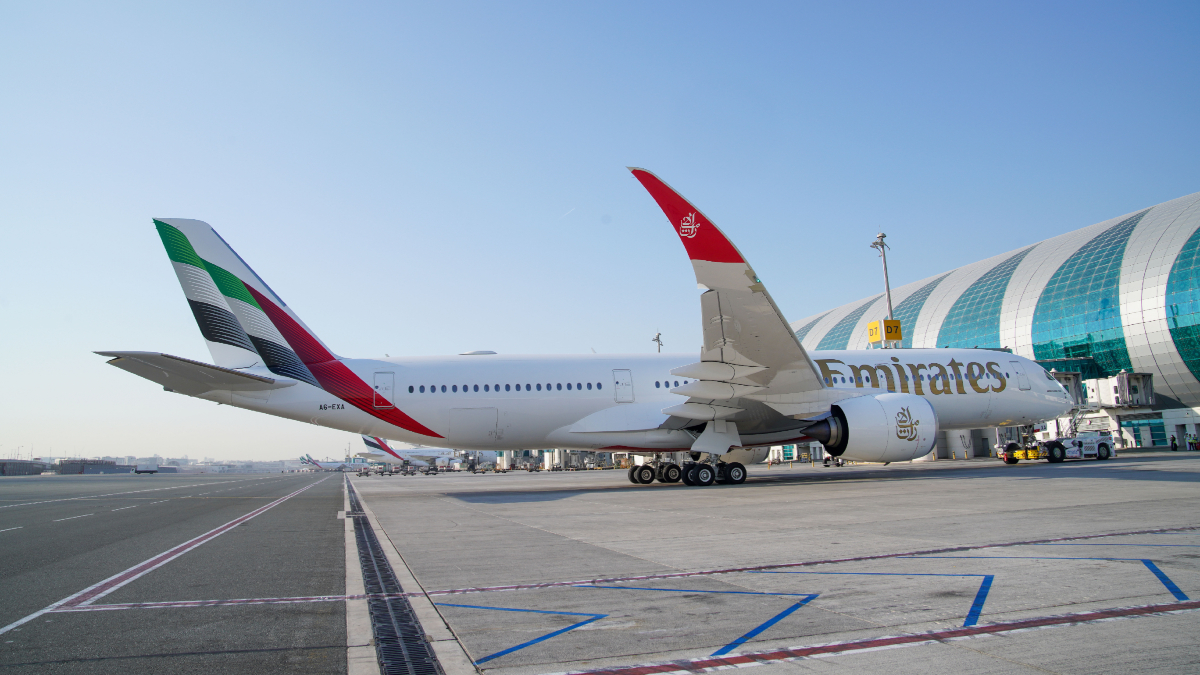Emirates has showcased its first Airbus A350-900 aircraft at an exclusive event in Dubai, marking a significant addition to its fleet and the first new aircraft type to join since 2008. The unveiling was led by Sir Tim Clark, President of Emirates Airline, alongside UAE Minister of Economy His Excellency Abdulla Bin Touq Al Marri. VIP guests, government officials, aerospace partners, and aviation enthusiasts attended the event.
The aircraft features three spacious cabin classes, offering 32 next-generation Business Class lie-flat seats, 21 Premium Economy seats, and 259 Economy Class seats. Designed with cutting-edge technologies and premium interiors, the A350 aligns with Emirates’ vision of enhancing passenger comfort and operational efficiency.
“Today is an exciting milestone for Emirates as we showcase our first A350 and usher in a new era for our fleet and network growth,” said His Highness Sheikh Ahmed bin Saeed Al Maktoum, Chairman and Chief Executive of Emirates Airline & Group. “This aircraft will help us expand our reach, meet customer demand in new markets, and contribute to Dubai’s D33 Strategy.”
The A350 will enable Emirates to fly to new global destinations, including mid-sized airports unsuitable for larger aircraft. The airline plans to operate two versions of the A350—one for regional routes and another for ultra-long-haul journeys. The first commercial flight is scheduled for Edinburgh on January 3, 2025, with plans to expand services to destinations such as Bahrain, Muscat, Lyon, and Colombo in the following months.
Philippe Mhun, Executive Vice President Programmes & Services for Airbus, celebrated the partnership, saying, “We expect the A350 to become an integral member of the Emirates’ fleet and support its continued growth and sustainability ambitions.”
With 65 A350s on order, Emirates aims to continue strengthening its position as a global aviation leader while supporting Dubai’s growth as a central hub in the world economy.






